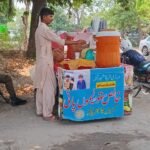US president Donald Trump’s recent trade tariff imposed on various countries has become the talk of town. Trump’s unrealistic belief that US has been taken advantage of by trading partners including China, Canada, Mexico, Asian countries and European Union through low cost imports. He believes that imposing recent tariff will help boosting and protecting Local US industries and competitiveness.
As part of “America First” recent Trade policy is aimed at creating new job opportunities in manufacturing sector, reduce trade deficit and increasing Federal revenues. However it is believed that it will bring serious economic implications; where as the consumer will ultimately pay for increased rates if the purchasing market of imported goods remain favorable.
Trumps new Tariff plans are expected to effect Pakistan’ economy significantly. Pakistan has been exporting various goods and services to USA including Textile and leather goods, Rice and optical technical equipment. In terms of worth these exports to the United States are substantial, with a total value of $5.18 billion in 2023. The top exports include: Textiles: $4.03 billion, with key products such as:
- House Linens: $1.1 billion
- Non-Knit Women’s Suits: $418 million
- Knit Sweaters: $398 million
- Miscellaneous: $205 million
- Animal Hides: $188 million
Other notable exports to the US include :
- Apparel: $1.41 billion (knit or crocheted) and $994.09 million (not knit or crocheted)
- Cotton: $165.51 million
- Leather Goods: $157.71 million
- Furniture and Lighting: $112.32 million
- Optical and Technical Equipment: $100.71 million
With bilateral trade friendly policies in last regime, these exports have seen growth with annual rate of 5.21% from 2018 to 2023. This growth indicates a substantial increase in trade between Pakistan and the US in recent years.
However Pakistan particularly its textile sector, which accounts for about 80% of the country’s exports to the US is expected get effected by recent Tariffs imposed. The US has imposed a 29% tariff on Pakistani imports, effective April 9, 2025, as part of Trump’s “Fair and Reciprocal Plan”. US has imposed tariff on India is about 26%, while Pakistan’s other regional competitors Bangladesh is facing 37% Tax increase and Vietnam is expected to have 46% tariff increase on imports.
Increase in tariff over Pakistani Imports will bring economic impact specially in textile sector; it can cut $1-2 billion, increasing the country’s economic challenges, including a large trade deficit and limited export platforms. It is pertinent to mention Pakistani economic growth has not been steady in previous years. Factors like inflation with rate of 0.7% as of April 2025, rate of unemployment, and with external debts worth $ 131 Billions in 2025 will put a standstill to economic growth.
The tariffs are expected to lead to job losses in textile sector resulting Pakistan rupee depreciation and increased financial vulnerabilities. However experts believed that there are opportunities for Pakistan’s textile sector comparing to its competitors like Bangladesh and Vietnam. US consumer market will look for products with lesser prices and importers might contact Pakistani manufacturing industries. Keeping in view the heightened cost of production within Pakistan due to energy costs and local Tax structures. However The textile sector has suggested a course of action to the Pakistani government regarding the Trump reciprocal tariffs, saying that the United States is not into tariff reductions but is instead focusing on addressing bilateral trade imbalances revealed in papers prepared by APTMA on ‘Trump Tariffs: Impact on Pakistan and Way Forward.”
Hopefully with proposed suggestion by APTMA to government including importing cotton to increase US imports to balance the trade deficit saying that US cotton is already being imported on zero duty and Pakistan can substitute imports from Brazil and Afghanistan.
Also US has indicated that it is open to negotiations if countries address concerns constructively. So We are hoping that Government takes appropriate measures to address challenges faced by Pakistani Textile sector.







